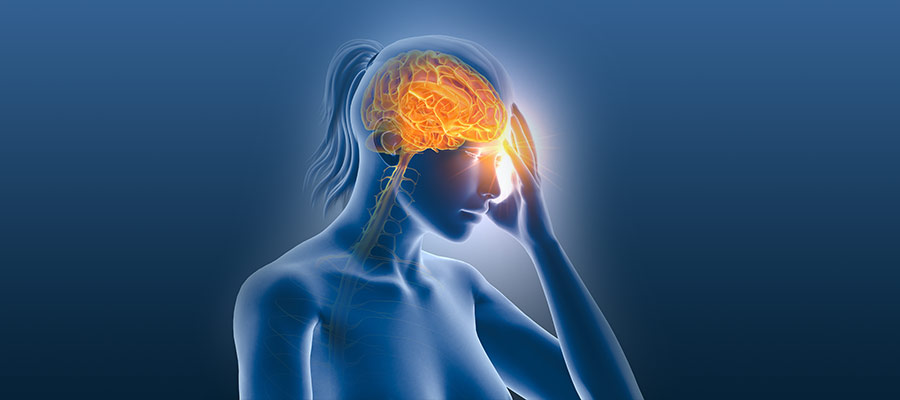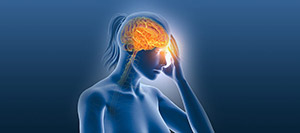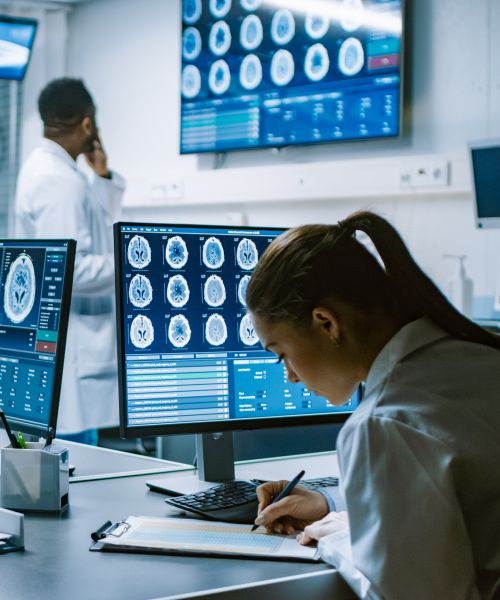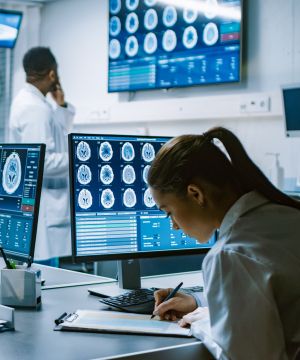Traumatic Brain Injury Scan Specialist in Culver City Los Angeles, CA
A traumatic brain injury (TBI) diagnosis entails determining the extent of the damage and the brain functions that are impacted. A TBI diagnosis can be clear in severe situations where symptoms are obvious, but it can be more difficult when the indicators are more subtle, demanding a thorough evaluation. At the iVIE MRI Diagnostic Center, Dr. Kourosh Naini and our team of experienced professionals provide brain injury diagnosis. For more information, contact us or book an appointment online. We are located at 11600 Washington Pl Suite 104A, Culver City, CA 90066.




Table of Contents:
What are the symptoms of a brain injury?
What are the diagnostic criteria for traumatic brain injury?
Who is more likely to get a traumatic brain injury (TBI)?
How is a brain injury diagnosed?
Symptoms of a brain injury can vary greatly depending on the severity and type of injury. They can range from mild symptoms such as headaches, dizziness, fatigue, confusion, and nausea to more severe symptoms like chronic pain, emotional changes, sleep disturbances, and sensory loss.
In mild traumatic brain injuries (TBIs) and concussions, symptoms may manifest immediately or may not appear for hours or days after the injury. Symptoms generally improve over time, with most people recovering within a few weeks. However, more serious TBIs can lead to severe and permanent disability or even death.
The symptoms of brain injury can also evolve. Initially, one might experience physical symptoms like headaches or nausea. As recovery progresses, emotional symptoms such as frustration and irritability can develop. Brain injuries can be focal, affecting one area of the brain, or diffuse, impacting a more widespread area.
The primary effects of brain injury include bleeding, tearing of nerve fibers, inflammation, metabolic changes, and brain swelling. Secondary brain injuries, which can arise gradually after the initial trauma, result from reactive processes occurring in response to the primary injury.
The diagnosis of traumatic brain injury (TBI) involves assessing the severity of the injury and the affected brain functions. Diagnosing TBIs can be straightforward in severe cases, where symptoms are apparent and neuroimaging tests show clear signs of injury. However, symptoms can be subtle in mild or moderate cases, necessitating further assessment.
Diagnostic criteria often include neuroimaging tests like CT scans and MRIs to visualize structural damage and assess altered consciousness or loss of consciousness. Mild TBI is particularly challenging to diagnose due to its transient brain dysfunction and sometimes structural damage. However, the capacity of diagnostic imaging to inform the diagnosis of TBIs is ever-evolving.
Certain demographics are more susceptible to traumatic brain injuries (TBI), with varying factors contributing to this increased risk. Older adults, for instance, are particularly vulnerable and represent the highest numbers in terms of TBI-related hospitalizations and deaths. This heightened risk in older adults is often attributed to falls and age-related health complications that can exacerbate the impact of head injuries.
Individuals working in environments with inherent hazards, such as construction sites or industrial settings, face a notable risk of TBI due to potential accidents involving falls, machinery, or debris. Similarly, people engaged in contact sports are at a significant risk.
Sports like football, boxing, or hockey, where head impacts are more frequent, can lead to concussions or more severe brain injuries. Adopting rigorous safety protocols in the workplace and wearing appropriate protective gear during sports activities are essential measures to reduce these risks.
Diagnosing a brain injury typically involves a combination of methods. Medical professionals often start with a CT scan, which is effective in identifying serious brain injuries like bleeding. However, a CT scan may show normal results even when a person has a brain injury.
In such cases, it’s important to diligently record and report any persisting symptoms to a medical provider. An MRI and EEG might also be used, although they may not indicate a TBI in cases of concussion or other head injuries, even when symptoms persist.
If initial tests like CT scans, MRIs, or EEGs return normal results, yet symptoms of a TBI are present, more advanced testing may be recommended. A neurologist might suggest further evaluation to accurately diagnose the TBI.
Rehabilitation often begins during the acute treatment and becomes more extensive as the patient’s condition improves. The type and severity of the injury, as well as the symptoms presented, are crucial in formulating an effective treatment and rehabilitation plan.
Brain injury diagnosis is available at the iVIE MRI Screening Center. For more information, contact us or book an appointment online. We are located at 11600 Washington Pl Suite 104A, Culver City, CA 90066. We serve patients from Culver City Los Angeles CA, Downtown LA, Beverly Hills CA, Marina del Rey CA, Venice CA, Santa Monica CA, and surrounding areas.


Additional Services You May Need
▸ Dementia Screening
▸ Aneurysm Screening
▸ Spine MRI
▸ Whole Body MRI Screening
▸ MRI Brain Screening
▸ Brain PET
▸ Work/Sport Spine Injury Diagnosis
▸ Work/Sport Brain Injury Diagnosis
▸ Whole Body PET For Cancer
▸ MRA Brain Screening


